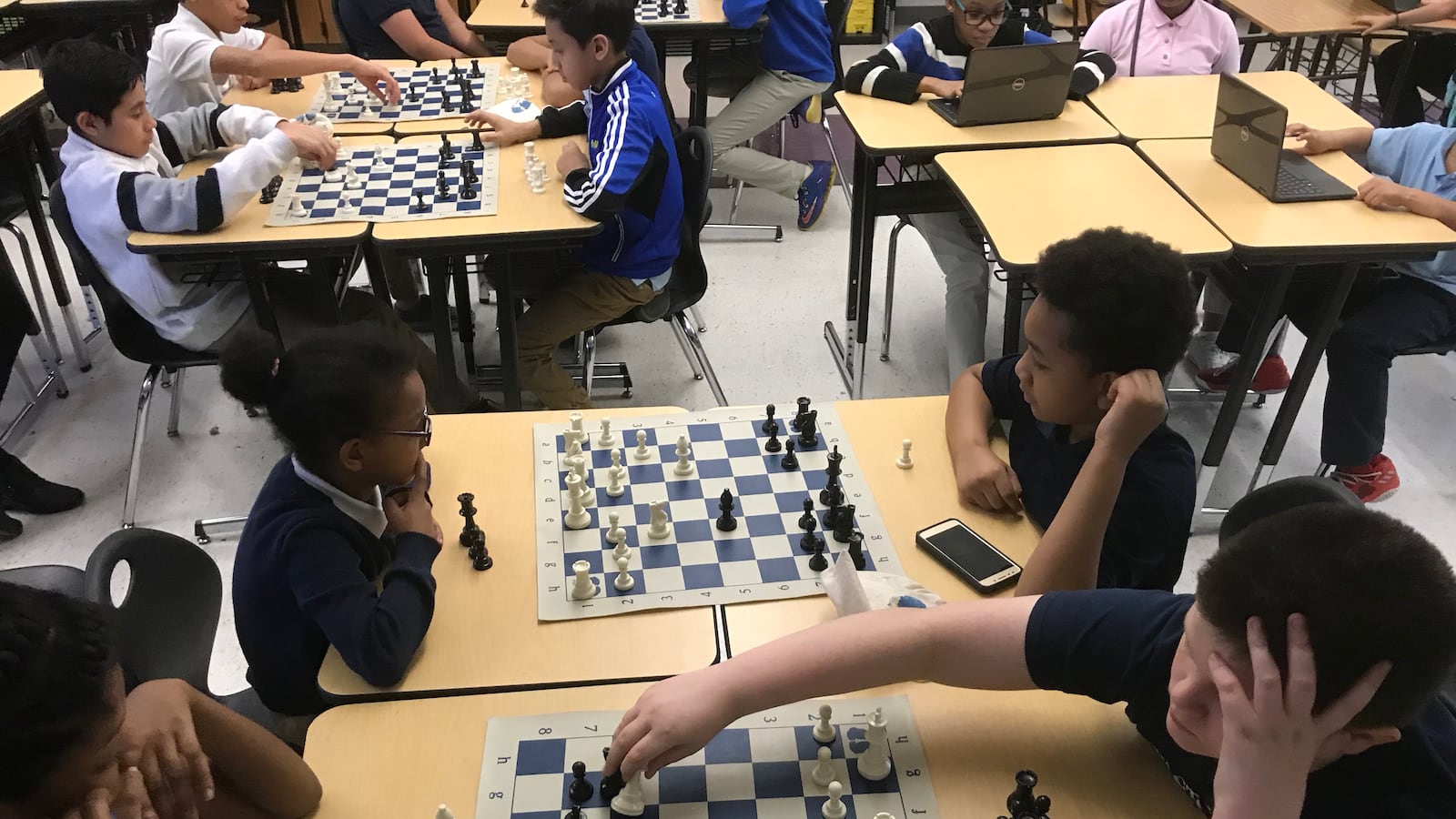Mia Singleton and Shaun Tinker were focused on the chess board in front of them, their eyes darting back and forth as they contemplated their next step, when Shaun made a move that caught the eye of Coach Joe Lauchlan.
“Shaun, did you have a better move right there?” the coach asked the seventh-grader.
Shaun looked down at the board, surveyed it for a few seconds, then looked back up at his coach and nodded as he realized the move he should have made.
Chess is all about strategy, and that was on display Tuesday at Munger Elementary-Middle School, where the middle school chess team is preparing for what may seem like the unthinkable: A trip to a national chess tournament in the team’s second year of existence.
But for these students, getting to nationals is the result of a lot of hard work.
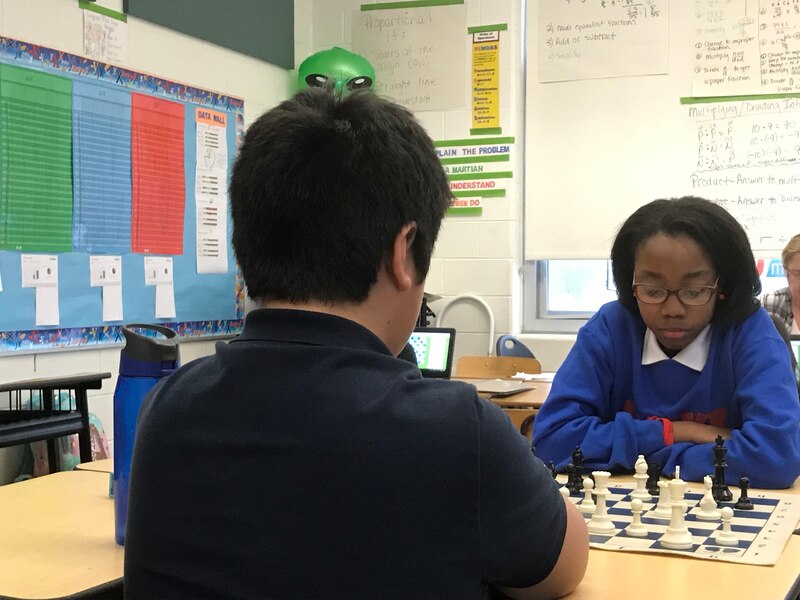
“We really wanted this,” said seventh-grader Kelsey Gibbs, 12.
“We practice and we practice,” said Mia, a seventh-grader. “We stay focused on what we need to stay focused on.”
Teams like the ones at Munger exist because the Detroit school district is making big investments in chess — restoring “a point of pride for the district that was stripped away under emergency management,” Superintendent Nikolai Vitti said. State-appointed emergency managers were in control of the district from 2009 until the end of 2016.
Chess is also providing a perfect outlet for the kind of skills some students already possess, Vitti said.
“So many of our students are natural critical thinkers,” Vitti said. “They are constantly having to strategically think through their daily lives to overcome challenges and barriers.”
The investments are starting to pay off. There are far more teams and clubs today than there were even just a year ago — from fewer than 20 to nearly 35. Since Vitti took over, the district has purchased chess sets for schools with clubs, covered memberships in state and national chess federations, covered registration fees for tournaments, and recently, allocated nearly $160,000 — using federal Title I grant money — for trips to national competitions.
Detroit already has some top chess teams, representing district, charter and private schools. In a league sponsored by the district — the Detroit Metro Scholastic Chess League — a handful of charter schools and private schools are among the 30 competitive teams. Among the most notable: University Preparatory Science and Math Academy, University of Detroit Jesuit, and Cornerstone Jefferson-Douglass Academy, all strong performers at the local, state and national level. Joining them are district schools such as Cass Tech, Renaissance, Bates, Chrysler, and Ludington. Bates, for instance, won at a state elementary chess competition Saturday — which brought together chess teams from across Michigan. Last year, a team from Cass Tech won in its division at the national competition put on by the U.S. Chess Federation.
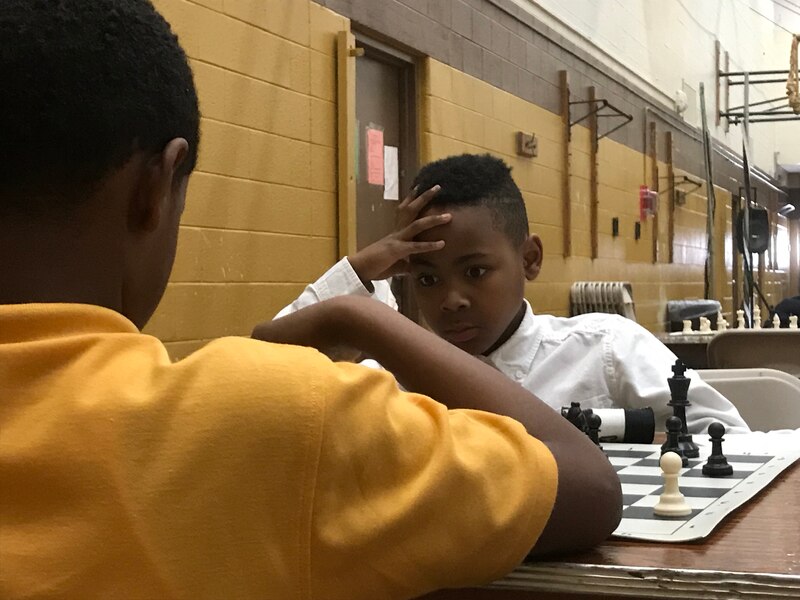
The increased resources from the district have been crucial to adding new teams and keeping existing teams running, said Kevin Fite, a longtime chess coach for a number of teams in the city and the district’s director of STEM (science, technology, engineering and math).
“Over the years I’ve met with CEOs, superintendents for the district, and I’ve always tried to get chess in the schools,” Fite said. Vitti is “the first one that’s put his money where his mouth is.”
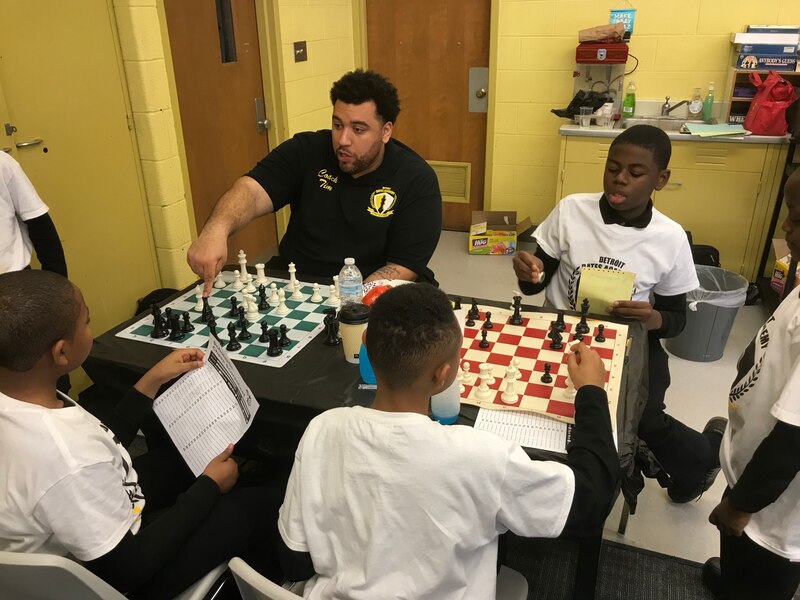
The district is sending nine teams to national tournaments in the next few months (up from six last year), and covering major costs such as transportation, registration, and lodging. Teams from Davison and Bethune, in their first-year, made it to the national competition, something Fite says “never happens.”
Other schools with teams heading to a national tournament include Bates and Chrysler at the elementary level; Bates and Munger at the middle school level; and Cass Tech, Renaissance, and Ben Carson at the high school level.
The current efforts are designed to increase participation — in the same way the district has tried to boost involvement in art, music, sports, and robotics.
“Chess represents discipline, thoughtfulness, strategic and critical thinking, patience, and mindfulness — all of the qualities we want to instill in our students,” Vitti said.
“Our students are brilliant but we do not always provide them with multiple opportunities to demonstrate that brilliance,” Vitti said. “Chess is another pathway we are offering students to shine.”
And while this effort is paying off for many schools, Fite said there is still a need for people to coach teams. Coaches can be teachers, but they can also be volunteers (who would have to undergo a background check).
“We’ll train coaches,” Fite said. “You don’t have to be a superstar chess player to be a coach. Because I wasn’t.”
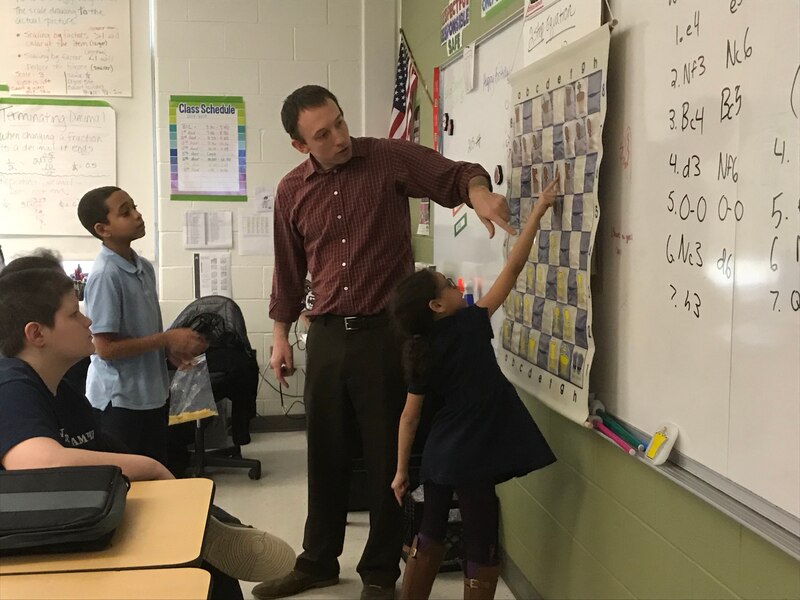
At Munger, the elementary and middle school teams are coached by Lauchlan, a volunteer, and teachers Mary Hale and Sandy Davenport. They have formal practices twice a week in Davenport’s seventh-grade math classroom after school. But just about every day, students are clamoring to get into her classroom during their lunch hour so they can practice.
During Tuesday’s after-school practice session, Lauchlan first divided the teams into two — one group to represent the black pieces and the other group to represent the white pieces. They then engaged in a spirited debate about the best moves to make, using a large chess board attached to the blackboard.
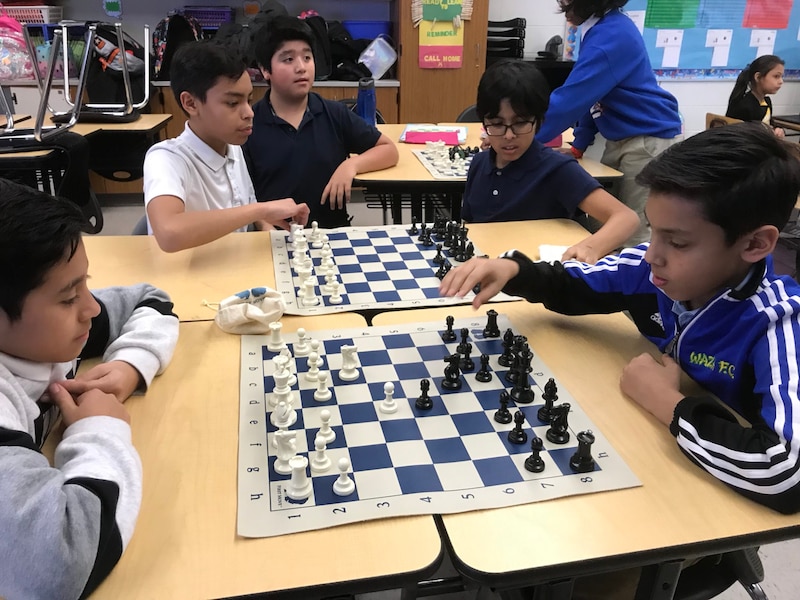
When that game was over, the students paired off to play each other, with Lauchlan walking around observing and offering suggestions.
“We practice against each other, to learn each other’s strategies,” Shaun said.
Ask the students why they like chess, and you’ll get a variety of answers. For some, it’s about improving their concentration skills.
“You have to really think about what you need to do,” said seventh-grader Jared Hernandez, 12.
Seventh-grader Taylor Jackson, 12, likes learning new moves. Myia Singleton likes that she’s learning how to strategize. Her little sister, Mackenzie, a third-grader, likes that she’s improving her math skills. Bryan Santana likes competing in tournaments.
For Munger fifth-grader Jordan Parham, chess is an opportunity to dominate and “destroy the other army.” Along the way, the 10-year-old said, “It makes your brain smarter.”
And then there’s Shaun, who got into chess as an escape from his five sisters. He’s the only boy in the family.
“There’s all girls in my house and I just want to get away from them most of the time. I’m not going to lie about that,” said the 13-year-old. But there’s another benefit: Going to competitions. And winning.


